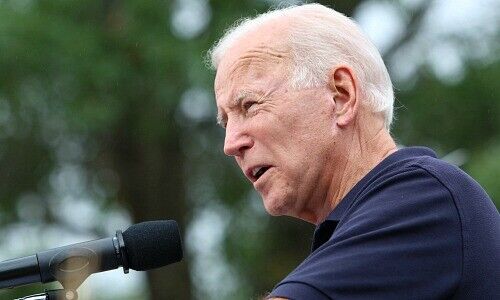Predicting Joe Biden’s Approach to the U.S.-China Relationship
The president-elect’s congressional record indicates longstanding concerns with China.
Media and pundits worldwide have been speculating as to whether U.S. president-elect Joe Biden will be tougher or weaker than Donald Trump on China.
But a better gauge of the future direction might be his fundamental views of the relationship between the two countries, which is probably best gleaned from a small selection of the extensive public statements he made on the subject when he was a ranking member or chairman of the Senate Foreign Relations Committee in the 1990s and 2000s, before becoming vice president under Barack Obama in 2009.
Dogged by Uncertainties
One of the clearest indications of how he sees the two countries can be seen in congressional records, particularly the senate debate over China in July 2000.
«U.S.-China relations remain dogged by uncertainties… China’s fear of how we might exploit our position as the world’s only superpower is matched by our concerns over… its intimidation tactics against Taiwan… China’s leaders decry U.S. «hegemony» and «interference in their internal affairs»… an awakening China which wants to play in major leagues, but is not sure it wants to abide by all the rules of the game.»
What is most surprising in the intervening 20 years is how little has fundamentally changed given that the same fears and suspicions that existed then remain relevant – regardless of the actions of the Trump administration.
Worries About SOEs
A month before that, when the senate was discussing normalizing trade relations with China, he appeared prescient in discussing longstanding issues, which many have in the West today, about sovereign-owned entities (SOEs): «They are now raising billions of dollars in our capital markets and there’s no transparency. We do not know what the monies are going for. We know precious little about the companies except that they are basically controlled by the Chinese government.»
Here it should be borne in mind that the 2019 U.S.-China economic and security review commission report indicates PetroChina, China Petroleum & Chemical, and China Unicom – all SOEs – would have undertaken IPOs around that time
Clarity on Taiwan
Over the years, he has also made various statements in support of Taiwan exemplified by the one below from a speech in March 2000 discussing the successful conclusion of the island’s presidential elections.
«The United States commitment to Taiwan’s security under the terms of the Taiwan Relations Act helped created the stable environment in which Taiwan has thrived.»
Worries About Human Rights
Biden has repeatedly voiced human rights as an issue, even going so far as to criticize then-President Bill Clinton ahead of his trip to China in 1998 for not doing so.
«I was very disappointed when the President decided not to condemn China for human rights violations before the United Nations Human Rights Commission in Geneva. If we are not going to criticize China’s human rights violations in front of an international body specifically created to safeguard human rights standards, where are we willing to voice our concerns?»
Using Sanctions
Biden also has a clear view on the use of sanctions against China, also expressed ahead of Clinton’s trip. «When all else fails, the U.S. should not hesitate to punish China by using carefully targeted multilateral sanctions. But this should be last resort, not a reflex.»
«A wise man on the Foreign Relations Committee, the Senator from Indiana, has pointed out the dangers of an over-reliance on ill-defined unilateral sanctions as an instrument of foreign policy.» If he continues to hold this view today, it could be reasonably expected for him to make an effort to downplay individual sanctions against China in favor of a more nuanced approach that takes pains to involve the country’s allies and international bodies.
Whether or not Biden takes that approach and whether this proves effective during his administration after the unilateral steps taken by Trump in recent years remains to be seen.




























